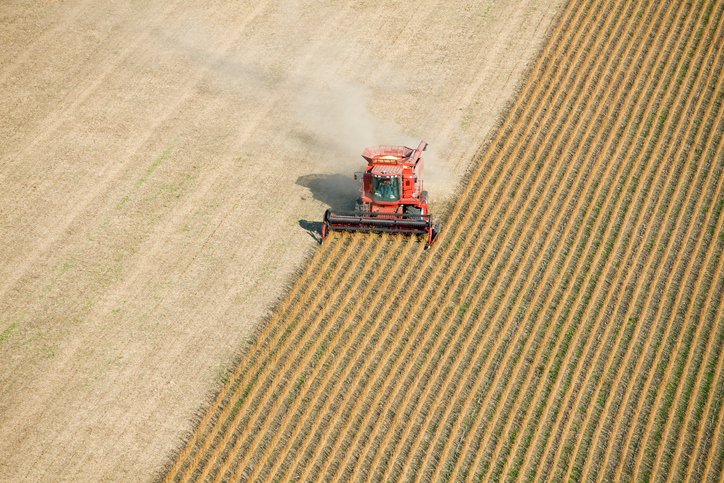Europeans are unwittingly wiping out forests across the world.
According to new research, the average European consumes 60.6kg of soy per year, the majority of which can be linked to deforested areas and converted savannahs and grasslands in South America.
This means that contributing to the destruction of precious natural ecosystems is always just one meal away.
Our ‘indirect’ soy consumption
Commissioned by WWF, the ‘Mapping the European Soy Supply Chain’ report shows 90% of the soy Europeans eat is not listed as an ingredient. Instead, it is consumed indirectly because soy is the main animal feed used to produce meat, eggs, fish and dairy products.
In 2020, the average European consumed 237 eggs, 117kg of various dairy products, 58kg of pork, poultry, beef and other meat and 2kg of farmed fish.
In some cases, such as for chicken and salmon, the amount of soy animal feed is almost equal to that of the food produced.
95 grams of soy are needed to produce 100 grams of farmed salmon, and 96 grams of soy for 100 grams of chicken breast.
‘We need to open our eyes to the impact that the European Union and its consumption have not only on forests but also on grasslands and savannahs – we cannot support the destruction of invaluable nature or peoples livelihoods for our dinner.’
ANKE SCHULMEISTER-OLDENHOVE
Senior forest policy officer at WWF’s European Policy Office
Calls for a ‘loophole-free law’
EU decision-makers are currently discussing an EU deforestation law to curb the footprint on EU consumption.
Presented last November, the European Commission’s legislative proposal contains many strong elements.
However, it would limit the scope of the new law to forests, postponing a potential inclusion of other ecosystems by at least two years.
As a result, the existing pressure of agricultural production on savannahs and grasslands is ignored and there is a risk that new expansion of soy production will be shifted from forests to these other ecosystems.
 Play Video about This Rock Might Just Save The World
Play Video about This Rock Might Just Save The World Play Video about Play 2 hours of rock
Play Video about Play 2 hours of rock Play Video about Play 2 hours of brook
Play Video about Play 2 hours of brook Play Video about Play 2 hours of sheep
Play Video about Play 2 hours of sheep











































